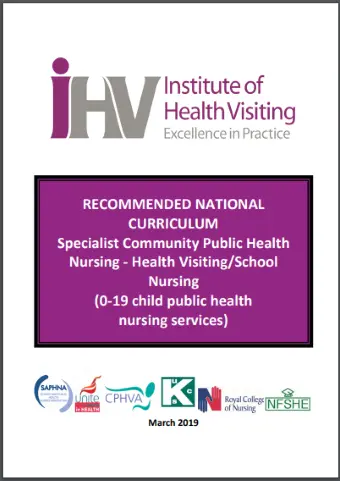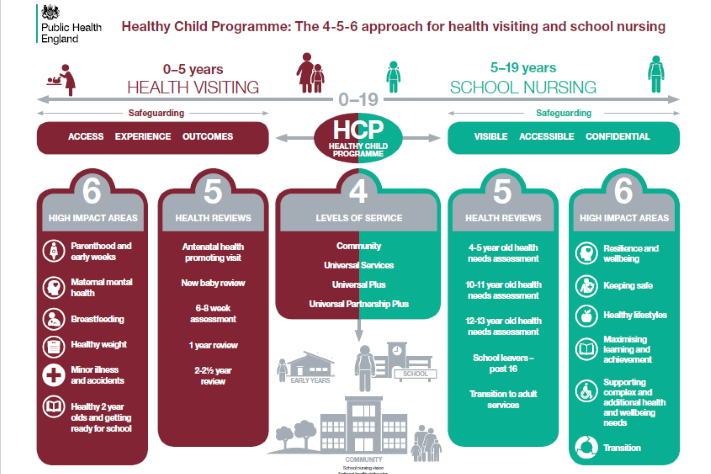The Institute of Health Visiting (iHV), alongside 5 health organisations, is delighted to publish the new Recommended National Curriculum for Specialist Community Public Health Nursing – Health Visiting/School Nursing (0-19 child public health nursing services).
The Recommended National Curriculum is a consensus statement of the overarching knowledge, skills and attributes that can be expected of Specialist Community Public Health Nurses delivering health visiting and school nursing services to families, children and young people from age 0-19. It is the product of a consensus-building partnership between the Institute of Health Visiting (iHV), Unite/Community Practitioner Health Visitor Association (CPHVA), United Kingdom Standing Conference (UKSC), National Forum of School Health Educators (NFSHE), School and Public Health Nurses Association (SAPHNA) and the Royal College of Nursing (RCN).
Developed for use by curriculum developers and providers of health visitor education including higher education institutes, private providers, charities and other voluntary sector organisations, amongst many others, the Curriculum provides authoritative evidence-based guidance applicable across the whole UK in the context of rapid change in policy and practice, fragmentation of services and inconsistency in delivery.
Dr Cheryll Adams CBE, Executive Director at the Institute of Health Visiting, said:
“Parents, children and young people consistently highly rank having good access to a health visitor or school nurse as being important as a source of advice and support due to their reliable knowledge and expertise on the health issues that matter to them. The publication of this Recommended National Curriculum provides a consensus statement of the overarching knowledge, skills and attributes for nurses to be educated and trained to deliver this specialist level of community public health nursing across the UK. The partners collaborating in the development of this curriculum commend its use to commissioners and providers of health visiting and school nursing education and services, and to the NMC as it reviews its Standards of Proficiency.”
The Recommended National Curriculum provides a firm basis for future developments in individual higher education institutions and also at a national level, when the Nursing and Midwifery Council (NMC) proceeds with its Programme of Change for Education and reviews the Standards for Specialist Community Public Health Nursing.
The curriculum also endorses health visiting and school nursing as a distinctive level and form of practice that warrants regulation, to assure the public of the professional standards that they can expect of registrants prepared for and practising as health visitors and school nurses.






